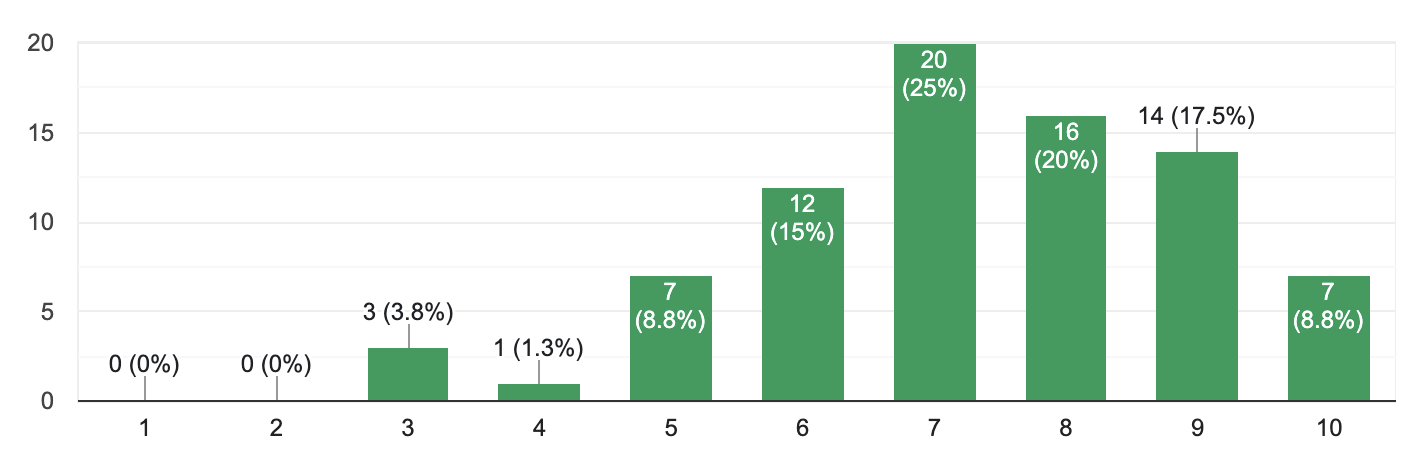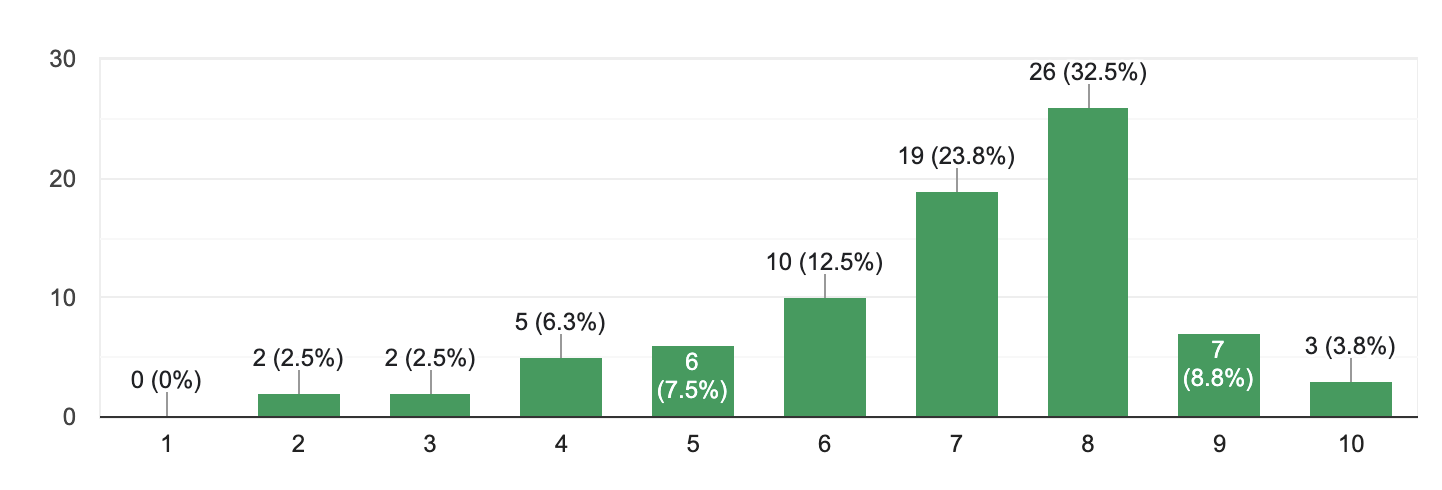How we strive for a church more engaged in global missions
September 5th 2022
One of my passions is to see local churches more fully engaged in global missions. By global missions, I just mean missions beyond the local sphere, but particularly overseas missions. God is passionate about global missions and fully committed to it! God is a missionary who sent his own dear Son to be a missionary to a broken and lost world (John 3:16). And God designs his church to have “sending” to the nations of this world as part of its very purpose or DNA (see John 20:21; Acts 13:2).
As I’m writing to the Missions Interlink community, I’m assuming we share a passion for churches to be fully engaged not just in local mission but also global mission. Maybe like me you sense levels of engagement are not where they should be? In this article, I’d like to have a brief look at four issues in order to help draw a roadmap towards greater engagement.
Here’s where I’ll go:
Where we are at with church engagement in global mission
Why we are where we are
A biblical model of global missions’ engagement
Drawing a trajectory to a fuller global missions’ engagement.
Where we are at with church engagement in global missions
Let me take a brief look at “where we are at” in regards to church engagement in global missions. I’ll start with my own denomination – the Presbyterian Church (in NSW). A couple of years back, I wanted to find out if the feeling that many local churches weren’t as fully engaged in global mission as they could be (or should be) was just in my mind. I’ll be upfront - I was partly motivated by my job as Executive Director of European Christian Mission (ECM) here in Australia. I’d love all the churches and denominations that we work with to be passionate about global missions, including of course my own! But was it just in my head? It turns out no!
I devised a ‘google forms’ questionnaire of Presbyterian Church NSW churches, to try to get a reasonable sample of current engagement in global missions.(1) I received back over 80 forms, representing multiple churches and regions and a degree of diversity in age, gender and marital status range. I wanted to measure engagement, on a scale of 1 to 10 (where 1 is no engagement and 10 is the fullest engagement possible). I defined global missions’ engagement as having a subjective dimension, that is, internal dispositions or passion for it, and a tangible dimension, that is, in terms of actual support given to missions (as assessed by typical things like knowing, praying for, and giving to missionaries). I got respondents to give an assessment of this in terms of (1) their own individual passion (2) their church’s passion (3) their individual support and (4) their church’s support. The results are shown in Figures 1-4 below.
Figure 1: Assessment of individual passion for Global Missions

Figure 2: Assessment of church passion for Global Missions

Figure 3: Self-assessment of actual individual support for Global Mission

Figure 4: Assessment of Respondents on actual church support for Global Mission

On a positive level, there is some evidence of excellent global missions’ engagement across individuals and churches. However, generally, across the board, Figures 1-4 show lots of room for improvement. If judged against ideal engagement (let’s say a ‘9’ or ‘10’), the levels generally fall well below. This is the case both for internal dispositions and actual support. While there is evidence of some churches being on the more passionate end of the scale, most were not (only 10% of churches were given a “9” or “10” and 25% were given a “ 7” or “ 8”). In terms of actual support given, only 11% thought their church offered excellent support (that is, a “9” or “10”, while 45% rated their church as reasonable to good (a “7” or “8”).
Now I’m sure this is not just an issue for the ‘Presys’! I doubt this is just a problem with certain churches in my denomination.(2) Anecdotally at least, as I talk to the different churches and denominations we partner with as ECM and also MI, there is an issue to be addressed across the board.
Why where are where we are
It is obviously very important to know “why we are where we are,” that is, why there is a concerning disengagement in global mission. We need to wisely reflect on this and look to the Scriptures as the ultimate authority. Back to the survey another time, I asked the respondents to identify what for them were reasons for greater or lesser engagement. Half mentioned the time a given church spends hearing from, and praying for, missionaries. 25% of respondents said it depended on the quality of the missionaries sent out by the church. A further 16% thought church leadership’s example and teaching in regards to global missions was critical.
Even with these type of responses, it still begs the question of why for instance, many churches and their leaders aren’t giving regular time in their services to hearing for and praying for missionaries? Why, in some churches, isn’t global missions featuring regularly in the preaching? If engagement depends on quality missionaries, why aren’t churches and denominations doing more to ensure great candidates are being selected, trained and sent? There are deep, underlying issues that need to be better grasped and addressed.
My opinion is that there is a deeper cultural problem going on, that is, in many cases, global missions is not seen as core or central to church life. It’s a minor department, a committee or something to be largely or wholly outsourced to mission agencies. An example of the mindset might help. I remember an ECM missionary couple that we sent out a few years ago (from another denomination), who reflected on this at their church. They were originally asked to share about their missionary work at the annual church camp but then leadership changed their mind. They thought it might be “distracting” from the camp’s main focus. Obviously what they were doing was not seen as ‘core’.
If it is right that there is a cultural problem going on, what do we put that down to? In some cases, it might be a theological/missiological issue. Do some churches not see it as their role to be involved in global missions? There are an increasing number of churches that effectively reduce missions to local outreach and community service and missionaries to local Christians. At times I hear the view that local mission is global mission,(3) which is taken to mean mission involvement need not transcend local frontiers.
In many cases, the problem is not so much theoretical (theological/missiological) but operational. Churches so feel the weight of obstacles and limitations in this area (e.g. lack of vision, time, resources and expertise) that they resign themselves to not getting involved in a more substantial way. Assuming you work with a missionary organisation, are you part of the problem? Have we, as the “missions community” (or MI community), been too successful in encouraging an “outsourcing” mindset, as an alternative to fostering a “partnering and empowering” mindset with local churches?(4)
A biblical model of global missions’ engagement
The Bible gives us God’s authoritative word on what it is to be a church that is fully engaged in global missions and how, we, under God, strive towards it. We don’t have to look too hard to find rich biblical material given over to this issue! Some of Paul’s letters are best seen as early missionary prayer letters (with appropriately more emphasis on the theological underpinnings for missionary endeavour). The easiest epistles to put in this category are Romans and Philippians. Let’s consider, for instance, the book of Philippians.
In his letter, Paul describes his relationship with the Philippian church as dynamic, intimate union that serves both local and global mission. It is a koinonia relationship (usually translated partnership/fellowship in 1:5) for the spread of the gospel that already exists and that Paul wants to foster even more for the sake of God’s glory.(5) The church walks in deep solidarity with Paul as their missionary, they have sent and Paul walks in deep solidarity with the church (that he planted). There is mutuality in each other’s welfare and mission. Both sides are integrally involved. They make sure they stay up-to-date with what’s happening, pray for one another and share stories that inspire each other to live sacrificial lives like Jesus for the sake of the gospel (see 1:27-30; 2:19-30). Koinonia flows from everyone adopting Paul’s personal motto “to live is Christ and to die is gain.” (1:21)
Yet koinonia is not only spiritual. In this relationship, they deeply care for one another’s basic material needs. So the church recognises Paul regularly requires their “financial support” as he commits to his missionary endeavours. But Paul is at pains to stress this is not a transactional or patron type of relationship. I note here that the occasion for his letter is partly because Paul desires to thank the church for the sending Epaphroditus to take care of him, along with a generous gift, while in prison (4:10-20). While he rejoices in the gift, it’s not due to a lack of contentment without material provision or a sense of entitlement. Rather he rejoices in their gifts because it is part of the church’s worship (4:18) and a participation in global mission (1:3-6).
In Philippians, there are many keys for church engagement in global missions. Let me mention the big one from which flows everything. There must be genuine koinonia relationship between church and missionary. Both church and missionary must know, love and walk with one another in Jesus and for the sake of Jesus. They are therefore completely invested in each other’s mission and need ongoing teaching, examples and stories that remind them of this. To the degree that this in place, the church will be more engaged in more tangible expressions of support for their missionaries, such as prayer and financial support. To the degree this is not in place, engagement will soon dissipate.
Drawing a trajectory to a fuller global missions’ engagement
We need each other to draw out what it fully means for global missions to be core to church life and ministry. We need to be learning from those churches that, inspired by the biblical model, have developed a strong culture of global missions’ engagement. One such study dedicated to this issue was done by American pastor, David Horner, who surveyed over 100 churches very engaged in global missions in the USA. He takes a look at key factors for developing strong engagement.6 Although this is an American context it is helpful for thinking through contextually appropriate ways for a church to build koinonia with its missionaries, for the sake of world mission.(6)
Did you notice that the letter to the Philippians does not mention mission agencies? I am convinced that God has given the local church the primary task of sending and supporting missionaries.
Agencies are a department of the church, whose DNA is (and must live up to being) local and global mission. So, we as missionary organisations should not get in the way of the direct koinonia bonds between church and missionary. When churches see it is their responsibility to raise up missionaries, appropriately playing their part in the selection, training/preparation, provision, placement and pastoral care of missionaries, then engagement in global missions will approach ideal levels. However, to the degree churches assume their responsibility, they will also see how much they need the specialist help of agencies and other organisations that train for ministry and mission such as Bible Colleges.
So, deep, biblical partnership is the way ahead. There is life and death at stake here, the very spread of the God’s life-changing gospel in a lost and broken world. As I conclude, let me promote a ministry of Missions Interlink, called “Global Missions Forum” (GMF). Glen Turner (CMS-NSW & ACT) and I are co-leading this ministry. This is an annual day where we bring together representatives of churches, agencies and training institutions to workshop how we can better send and support missionaries and global mission. This is not another conference where you sit and listen to great speakers. It is a day where we hear and learn from each other, facilitated by great speakers! This year, one of the key issues we’ll be looking at is how we create a global missions’ culture in churches and parachurch organisations. Please remember to put Friday 19th May, 2023 at Sydney Missionary and Bible College (SMBC) in your calendar. Note it will be a hybrid event, online and in person. We’d love to see you there. And please invite your church leadership team!

Matt George
In January 2017 Matt took up the role of Executive Director of ECM Australia. Matt, Louise and their two children entered a new phase in their lives after over 12 years of on-the-ground missionary experience with ECM in Portugal, first in Bible training in Lisbon and then evangelism and discipleship of university students in Coimbra. Working from the Croydon, Sydney ECM national office, Matt leads a great team of workers passionate to make Christ known. The Georges would appreciate your prayers for their family.